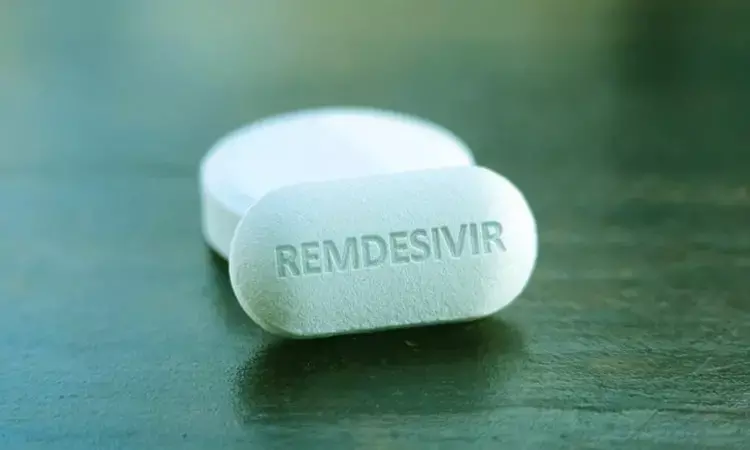- Home
- Medical news & Guidelines
- Anesthesiology
- Cardiology and CTVS
- Critical Care
- Dentistry
- Dermatology
- Diabetes and Endocrinology
- ENT
- Gastroenterology
- Medicine
- Nephrology
- Neurology
- Obstretics-Gynaecology
- Oncology
- Ophthalmology
- Orthopaedics
- Pediatrics-Neonatology
- Psychiatry
- Pulmonology
- Radiology
- Surgery
- Urology
- Laboratory Medicine
- Diet
- Nursing
- Paramedical
- Physiotherapy
- Health news
- Fact Check
- Bone Health Fact Check
- Brain Health Fact Check
- Cancer Related Fact Check
- Child Care Fact Check
- Dental and oral health fact check
- Diabetes and metabolic health fact check
- Diet and Nutrition Fact Check
- Eye and ENT Care Fact Check
- Fitness fact check
- Gut health fact check
- Heart health fact check
- Kidney health fact check
- Medical education fact check
- Men's health fact check
- Respiratory fact check
- Skin and hair care fact check
- Vaccine and Immunization fact check
- Women's health fact check
- AYUSH
- State News
- Andaman and Nicobar Islands
- Andhra Pradesh
- Arunachal Pradesh
- Assam
- Bihar
- Chandigarh
- Chattisgarh
- Dadra and Nagar Haveli
- Daman and Diu
- Delhi
- Goa
- Gujarat
- Haryana
- Himachal Pradesh
- Jammu & Kashmir
- Jharkhand
- Karnataka
- Kerala
- Ladakh
- Lakshadweep
- Madhya Pradesh
- Maharashtra
- Manipur
- Meghalaya
- Mizoram
- Nagaland
- Odisha
- Puducherry
- Punjab
- Rajasthan
- Sikkim
- Tamil Nadu
- Telangana
- Tripura
- Uttar Pradesh
- Uttrakhand
- West Bengal
- Medical Education
- Industry
Remidisvir leads to dangerously low heart rate in COVID-19 patient: Case Report

Remdesivir should be used cautiously in patients with known cardiovascular disease. USA: A recent case study published in Heart Rhythm Case Reports, describes the case of a COVID-19 patient who experienced significant bradycardia (low heart rate) after beginning treatment with remdesivir. A dopamine infusion was used to stabilize the patient through the five-day course of remdesivir treatment and the cardiac condition resolved itself at the end of the treatment.
"Remdesivir has become the standard of care for COVID-19 pneumonia and there is a paucity of data on its cardiac effects," explained lead author Jomel Patrick Jacinto, DO, HCA Healthcare/USF Morsani College of Medicine GME Programs at Regional Medical Center Bayonet Point, Hudson, FL, USA. "While it is known to be well tolerated and effective, it's critical to note its potential adverse effects on the cardiovascular system. To our knowledge, this is the first reported case of remdesivir-induced hemodynamically unstable sinus bradycardia."
The case in question was of a 78-year-old white woman with a medical history significant for hypertension, prediabetes, dyslipidemia, and former tobacco use presented to the hospital with dyspnea, myalgias, fatigue, and cough for approximately 1 week. On laboratory analysis, she was shown positive for COVID-19.
She was admitted to the intensive care unit and was started on standard COVID-19 treatment protocol, including antiviral therapy with remdesivir. Twenty hours after administration of the first dose, her vitals revealed very low blood pressure and a heart rate as low as 38 beats per minute. An electrocardiogram found marked sinus bradycardia. She lacked any prior cardiac history and had normal telemetry monitor and ECG findings prior to receiving remdesivir. She was started on a dopamine drip and maintained normal sinus rhythm with a heart rate of 60-65 beats per minute. Eighteen hours after her last dose of remdesivir, the dopamine was titrated off, and the patient was stable, with normal ECG findings.
Dr. Jacinto observed that remdesivir has an important role in the fight against severe COVID-19 because it has been shown to improve mortality rates and shorten the total time to recovery. In this case, completion of the five-day course of remdesivir was imperative to the patient's treatment despite the adverse effects as concurrent medical treatment with pressors such as dopamine was adequate support.
"Most hospitals have the ability to support the patient through the five-day treatment course to completion, using medications such as dopamine to nullify severe bradycardia," Dr. Jacinto said. "Having a heightened awareness of its cardiac safety profile is essential to make effective clinical decisions in the treatment of patients with remdesivir." He added that remdesivir should be used cautiously in patients with known cardiovascular disease.
Reference:
The case report -- Remdesivir-induced symptomatic bradycardia in the treatment of COVID-19 disease is published in the journal HeartRhythm Case Reports.
DOI: https://www.heartrhythmcasereports.com/article/S2214-0271(21)00100-7/fulltext
Hina Zahid Joined Medical Dialogue in 2017 with a passion to work as a Reporter. She coordinates with various national and international journals and association and covers all the stories related to Medical guidelines, Medical Journals, rare medical surgeries as well as all the updates in the medical field. Email: editorial@medicaldialogues.in. Contact no. 011-43720751
Dr Kamal Kant Kohli-MBBS, DTCD- a chest specialist with more than 30 years of practice and a flair for writing clinical articles, Dr Kamal Kant Kohli joined Medical Dialogues as a Chief Editor of Medical News. Besides writing articles, as an editor, he proofreads and verifies all the medical content published on Medical Dialogues including those coming from journals, studies,medical conferences,guidelines etc. Email: drkohli@medicaldialogues.in. Contact no. 011-43720751


